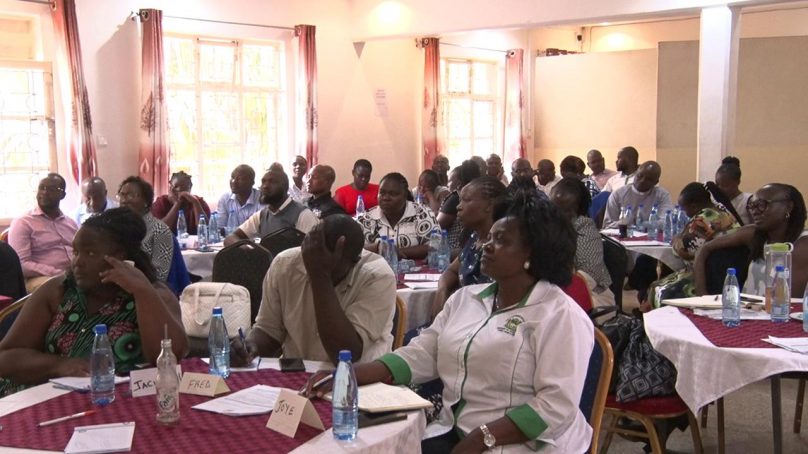
Kenya is course to implementing a 10-year National Care Reform Strategy that seeks to transition from Institutional childcare to family-based care by the year 2032.
The concept is anchored on fading African culture in which a child belongs to the community. The culture, which is still alive in the five counties of western Kenya – Kakamega, Vihiga, Busia, Bungoma and Trans Nzoia – has helped minimise the incidence of street children and beggars in urban settlements.
The transition is expected to provide children with more supportive family and community care and is driven by evidence showing institutional care can cause developmental drawbacks. The Department of Children’s Services (SDCS) has therefore intensified efforts on awareness creation and training on foster and alternative care.
Speaking in Kakamega County during a childcare campaign and training workshop for Trainer of Trainers (TOT), Assistant Director of Children’s Services Jane Munuhe said that, by shifting towards family and community care, the government is keen to ensure the child’s best interest is taken care of.
Ms Munuhe said the government has developed community-based alternative care services that provide for the best interests of the child.
“We have a wide range of family options such as kinship care. Guardianship, adoption and kafalah (among the Muslim community) to ensure children in need of care and protection are placed within a loving family and environment,” she said.
“As government, we are not closing Children Charitable Institutions (CCI’s) but we are just transitioning the children to ensure they are taken care of in family and community setup,” she said.
“We are not telling the CCI’s to get out of the way but they should ensure that the funds they have been getting from the donors is ring-fenced and to continue supporting children in family and community and that is what we are calling re-direction of resources,” she added.
Munuhe said, research conducted worldwide has shown that institutional care has had life-long consequences on the life of children. She noted more than half of Kenya’s population comprises children, with only 44,070 being raised in institutional care, a population she observed was too minimal to continue living in those homes.
She however emphasised that it will be mandatory for those seeking to take care of children to go through the necessary registration and after training and that the children will be routinely monitored to ensure their best interests are taken care of.
The assistant director said the programme was initially piloted in Kisumu County in 2018 and from lessons learnt, the government moved to Nyamira, Kilifi, Murang’a and Kiambu and now it’s being scaled up to the remaining counties.
She said the National Care Reform Strategy was developed through a consultative process involving both state and non-state actors and that by 2032, all children in the country will be raised in families and communities.
The three day training workshop brought together over 120 participants trained in three clusters in Kakamega, Malava and Mumias towns. The participants were drawn from State agencies including the National Admonition Government officers (NGAO), the National Police Service, the Children’s Department, judiciary, county government officials and non-state actors among them the clergy, non-governmental organisations and private sector.
Ms Munuhe said the transition is guided by Kenya’s commitment in fulfilling the international obligations to the United Nations Convention on the Rights of the Child, African Charter on the Rights and Welfare of Children, the constitution and the Children’s Act 2022.
- A Tell Media / KNA report / By George Kaiga








